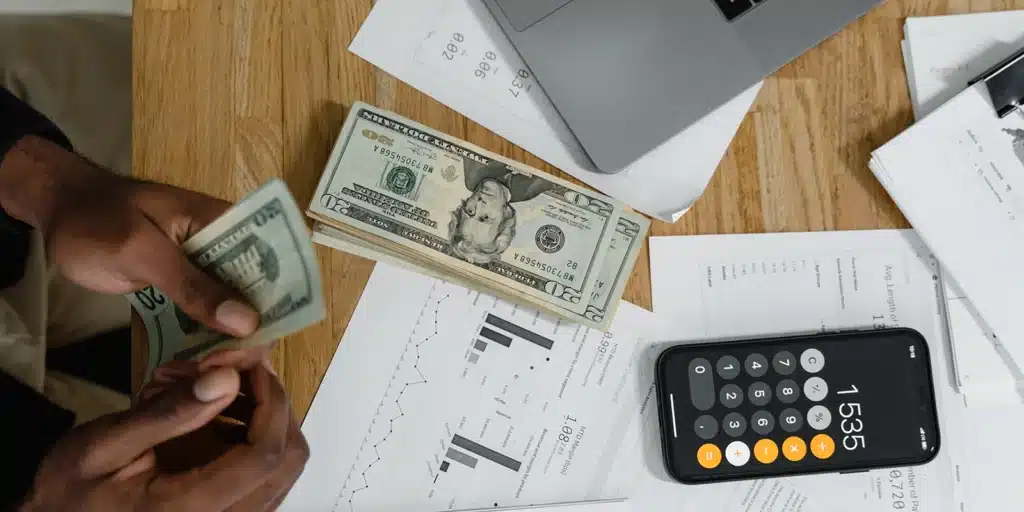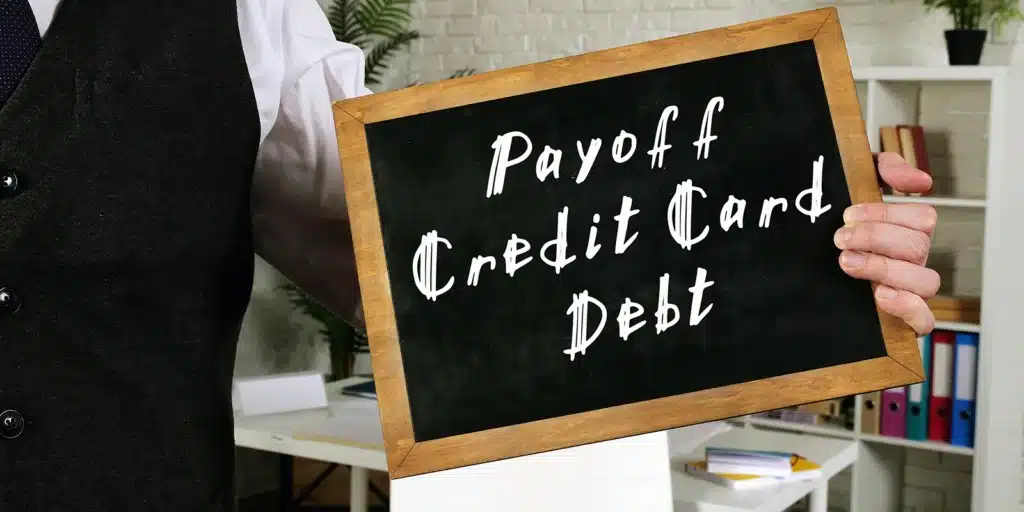How To Pay Off Credit Card Debt
Posted on December 4, 2020 in Credit Cards
If you need to know how to pay off credit card debt, you’ve come to the right place. Credit card debt can be a huge burden to deal with. It has an impact on the way you live and the limits that you have. There are a lot of things you can do to pay off your debt as fast as possible. Some approaches are more proactive than others.
Table of contents
The method that you choose for paying off your credit card debt should be a result of several factors. You should consider how much debt you have, your credit score, your credit history, and how many cards you have to pay off.
You want to get out of credit card debt as soon as you can so that you can continue on the road to financial freedom. Life comes with so many other stresses, why not learn how to pay off credit card debt today.
How Credit Card Debt Affects You
Credit card debt has a huge impact on your credit score. If you have a lot of debt, your score will take hit after hit if you don’t learn how to pay off credit card debt. This can affect your ability to take out a loan or apply for a mortgage. It also limits the amount of money you can spend on other things and also takes a huge chunk out of your budget every month. Credit card debt can also effect you in the long term: see if you should pay off debt or save for retirement first.
The calculation of your credit score is determined by your credit utilization. This is the ratio of your credit limit total and your credit utilization. If you have a very high balance, your credit score will be negatively impacted by this.
So how do you pay off credit card debt quickly and easily?
How to Pay Off Credit Card Debt
Pay As Much As You Can on Your Credit Card
The first tip is to pay as much of your statement as you can. If you only pay the minimum credit card payment each month, it will take you a very long time to pay off your cards. Also, if you pay in bigger chunks, you’ll owe less interest in the long run. Try to budget a little extra every month to pay your credit card statement and spend less on extra expenditures like entertainment or eating out.
Focus On Paying Off One Credit Card At A Time
This is a strategy that works for some people. Depending on the size of your debt, you may want to combine your debts into one payment. If you have a smaller amount of credit card debt, focusing on one card at a time may be a good solution for you.
You should select the card with the higher interest rate to pay first. You can also focus on the card with the smaller balance first because it will take less time to pay off.
Create a Budget
As mentioned before, budgeting is very important for getting yourself out of debt. If you don’t budget, you could get stuck in the never-ending cycle of continually using your credit cards while you are trying to pay them off. If you pay $200 towards your credit card and then make a $200 purchase immediately after, you’re right back where you started.

Try using a free budgeting app like Trubill or Mint, or writing down your weekly or even monthly budget somewhere. It’s important to start by writing down how much money you make in a month, and then subtract your monthly recurring bills, such as rent or a car payment.
You should also put your spending into categories such as groceries, gas, entertainment, etc. Always look for ways you can cut down your spending in your budget to focus on paying off your credit cards.
Credit Card Debt Consolidation
If you have a large amount of credit card debt, it may be easier to consolidate it into one payment. There are a few ways to do this. You can use a credit card that offers a balance transfer feature, you can apply for a personal loan, or you can get a home equity loan.
- Balance transfers can help you pay off your credit card without any interest. This will likely only be for the first few months to a year though, so you need to prioritize your payments. You might have to pay a balance transfer fee to do this.
- Personal loans for credit card debt can help you get slightly better interest rates than your credit card has. This option may also require a fee.
- Home equity loans involve borrowing money against the equity in your home. Your house is used as collateral, so the interest rate is generally pretty low. You will have to pay closing costs for this, and if you miss a payment, the lender could foreclose your home.
Keeping Your Accounts Open After You Pay Off Credit Card Debt
You might think it’s a good idea to close your credit card account after you pay the balance but the truth is that you should keep it open. Closing your account will prevent you from racking up more debt, but it would hurt your credit in the long run.
Keeping your credit card account open will help you benefit from a longer average credit history. It will also give you a bigger total available amount of credit on your report. This will bode well for your credit if lenders can see your credit history and the amount you are utilizing. Your credit utilization makes up 30% of your credit score.
So if you have no other available credit on your other cards, you should consider leaving your card with a zero balance open. You should try to keep your credit utilization below 30% but 10% is ideal.
If you are about to apply for a mortgage, you should not close your credit card account. It is difficult to say exactly how this will impact your credit score, so you want to stay on the safe side.
Although, some companies automatically close your credit card account if you don’t use it for a few months. If possible, use your card for very small purchases that you can pay off immediately. This will also help your credit score over time.
How To Stay Out of Credit Card Debt
One of the most important things you can do after you have made a plan to pay off your existing debt is to discontinue spending money you don’t have. This is the only way to stay out of debt and give you the financial freedom to build your credit.
- Communicate with your partner about money. Make sure you are on the same page when it comes to spending and agree on what is considered a “big purchase.”
- Use an app to budget your money or try to use cash when you can. Using cash can give you a visual of how much money you actually have to spend. Once it’s gone, you don’t have any more to use. Budgeting your money on an app on your phone can help you decide how much you can spend on groceries and fast food.
- A lot of credit cards have alert features for big purchases. Set this up for your card so that it will tell you when you have exceeded the limit.
- If you need some extra money, consider selling some of the things you don’t use. You can do this online or at some consignment shops.
- Don’t allow websites to store your card information. This makes it easier to purchase things without thinking about how much you are spending.
- Cancel memberships that you don’t use. If you are paying $20 a month for a gym you never use, that could save you $240 a year. If you are currently subscribed to a service that delivers products to you each month versus you going to the store to get them yourself, consider canceling them. You don’t need to pay for convenience when you’re in debt or if you can go out yourself for a quick errand.
- Remember to use WiFi if you can. Using your cell phone’s data could cost you extra on your phone bill each month. A lot of places offer free Wi-Fi if you agree to their terms.
Pay Off Credit Card Debt Today
Now that you have a good understanding of how to pay off credit card debt, you can see that being free of credit card debt is possible, but it will take consistency, commitment, and discipline.

Sometimes debt is unavoidable. But it doesn’t have to be something you always worry about. If you develop a plan to get out of credit card debt and stick to it, you will be debt free in no time. Remember to be patient, pay extra toward your monthly payments when you can, and tackle the cards with highest interest rates first, and that credit utilization will be at 0% before you know it. If you’re looking for other options to pay off debt, you may benefit from our guide on debt settlement pros and cons to find out if it’s a good option for you.
Related blog posts
Need expert financial advice?
Let TurboFinance connect you with the best consulting services and resources to help you take control of your finances and find a path to build wealth.
Get A Free Consultation Today!